- News
- Reviews
- Bikes
- Components
- Bar tape & grips
- Bottom brackets
- Brake & gear cables
- Brake & STI levers
- Brake pads & spares
- Brakes
- Cassettes & freewheels
- Chains
- Chainsets & chainrings
- Derailleurs - front
- Derailleurs - rear
- Forks
- Gear levers & shifters
- Groupsets
- Handlebars & extensions
- Headsets
- Hubs
- Inner tubes
- Pedals
- Quick releases & skewers
- Saddles
- Seatposts
- Stems
- Wheels
- Tyres
- Tubeless valves
- Accessories
- Accessories - misc
- Computer mounts
- Bags
- Bar ends
- Bike bags & cases
- Bottle cages
- Bottles
- Cameras
- Car racks
- Child seats
- Computers
- Glasses
- GPS units
- Helmets
- Lights - front
- Lights - rear
- Lights - sets
- Locks
- Mirrors
- Mudguards
- Racks
- Pumps & CO2 inflators
- Puncture kits
- Reflectives
- Smart watches
- Stands and racks
- Trailers
- Clothing
- Health, fitness and nutrition
- Tools and workshop
- Miscellaneous
- Buyers Guides
- Features
- Forum
- Recommends
- Podcast
news
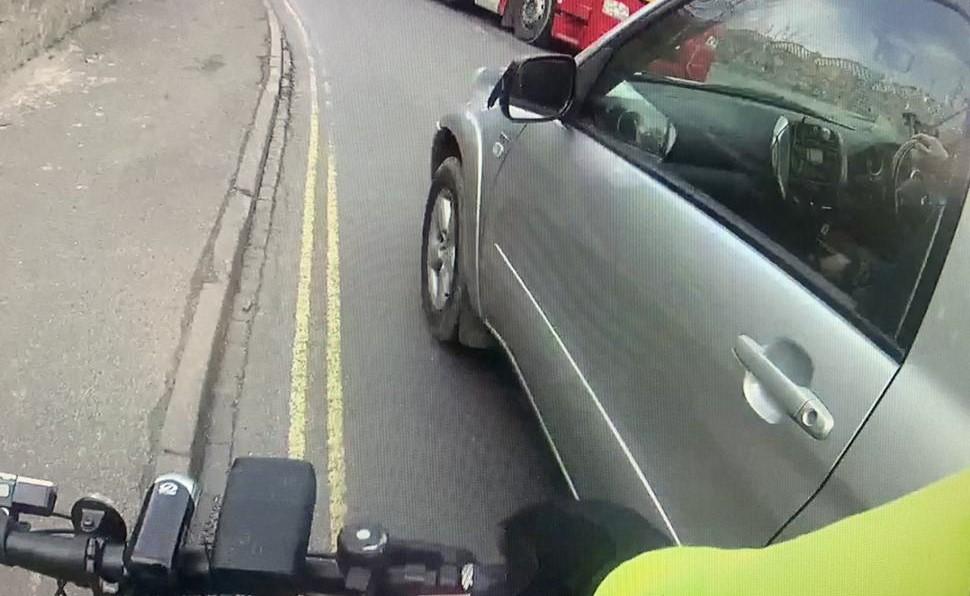 Close pass operation
Close pass operation “A close pass isn’t an offence and a lot of cyclists don’t realise that”: Police chief’s “odd” claim that cyclists need education on driving offences highlighted as evidence of UK’s current road safety “mess”
As Gloucestershire Constabulary announced that it was adopting Operation Snap, enabling road users to submit video evidence of dangerous or careless driving to the police through a dedicated online portal, the force’s non-crime unit head has come under fire from cyclists, after claiming that “a lot” of people who ride bikes “don’t realise that… a close pass itself isn’t an offence”.
The officer also said that the police “need to try and find a way of educating” people who submit footage to Operation Snap that the clips need “to show that the driver or rider is being inconvenienced in some way”, while bizarrely adding that “in the Highway Code you have something called a close pass, where you should allow cyclists 1.5m width”.
The muddled messaging from Gloucestershire Constabulary has been widely criticised on social media by cyclists, who have argued that the officer has failed to realise that close passes often constitute an example of careless driving, and that the officer’s comments misrepresent cyclists’ concerns about road safety and highlight “the mess in which we find ourselves as we seek to lower road crime against cyclists and encourage more people to cycle”.
This social media backlash followed Gloucestershire Constabulary’s announcement this week that it is the latest UK-based local police force to take part in Operation Snap, an online portal which allows road users to submit footage of instances of alleged dangerous or careless driving.
Across the UK, 24,000 clips have been submitted using Operation Snap over the last six months, with Gloucestershire’s dedicated officer currently dealing with over 140 submissions a month. According to Gloucestershire Constabulary, around 25 to 30 per cent of the footage so far has resulted in a Fixed Penalty Notice being issued, or an educational course being offered to the offending driver.
Speaking to the BBC, the head of Gloucestershire’s non-crime unit, Robert Vestey, said that dashcam and cycle camera footage has proved an “emerging way” of dealing with dangerous or careless driving “over the last three or four years”.
“It’s simple, it’s very effective, and it allows us to educate as well as prosecute where we need to,” Vestey said.
“Quite often they don’t even realise how bad their driving has been, so it allows us to work with them and just improve the safety on Gloucestershire’s roads.”
However, it was Vestey’s comments concerning the threshold at which the driving captured in the footage constitutes an offence – particularly when it concerns motorists’ actions around people on bikes – that have bemused and baffled cyclists on social media.
“The footage itself has got to prove the offence,” Vestey said. “There are some offences though that are so bad they would immediately go to court, and others that the public think are an offence but they’re not, so we need to try and find a way of educating people on that.”
The officer also insisted that the footage submitted has “to show that the driver or rider is being inconvenienced in some way”, and that he believes that one of the key solutions to increasing road safety is to send “advisory letters” to offending drivers detailing the Highway Code and the law.
He continued: “We get a lot of images sent in from cyclists, and in the Highway Code you have something called a close pass, where you should allow cyclists 1.5m width.
“But a close pass itself isn’t an offence and a lot of cyclists don’t realise that, so they get quite frustrated with us.”
“Most other forces reassure their communities that they do act against crime”
Since the Gloucestershire officer’s statement was published earlier this week, it has been met in particular with one, rather bemused question: What on earth does he actually mean?
“This statement, from the representative of a police force, shows us the mess in which we find ourselves as we seek to lower road crime against cyclists and encourage more people to cycle,” Tim, a cycling instructor and road safety campaigner, wrote on X (formerly Twitter) in response to Vestey’s comments.
“‘But a close pass itself isn’t an offence’ is an odd thing to say,” Tim said in a lengthy thread. “Close passing cyclists is an example of the offence of driving without care and consideration. Every week, hundreds of drivers face police action for close passing. The Metropolitan Police explain it clearly on their Driving Offences website: driving too close to another vehicle is an example of careless or inconsiderate driving.
“‘A lot of cyclists don’t realise that’ is equally odd. Cyclists who report close passes to their force are mostly aware that close passing cyclists is an example of the offence of driving without care and consideration leading to drivers facing police action every week.”
Tim continued: “The police force representative misrepresents the difference between laws on driving behaviour that are cited in the Highway Code – signalled by rules using MUST or MUST NOT – and the rules which set out the minimum standard for careful and considerate driving signalled by rules using SHOULD or SHOULD NOT.
“SHOULD or SHOULD NOT rules, which set out the minimum standard for careful and considerate driving, are (not unsurprisingly) the rules used to evidence the offence of Driving Without Care and Consideration.
“Could the statement be a ‘slight-of-hand’ attempt to justify why the police force they represent don’t take action to the same standards as other forces? If cyclists reporting close passes know that other forces take action to best practice, it’s not surprising that the force representative sees that these cyclists ‘get quite frustrated with us’.
“They just misrepresent why cyclists who report close passes get frustrated. The frustration is not a failure to understand the law, but a frustration with a force not applying the law for the purposes that it was introduced.”
> Here's what to do if you capture a near miss, close pass or collision on camera while cycling
Tim also argued that Vestey made the “opposite misrepresentation” when he, somewhat bizarrely, stated that “in the Highway Code you have something called a close pass”.
“While the term ‘close pass’ isn’t used in the Highway Code, it clearly sets out a rule that we should ‘leave at least 1.5 metres when overtaking cyclists at speeds of up to 30mph, and give them more space when overtaking at higher speeds’. Variability is classic excuse talk,” Tim wrote, before adding that, in any case, the 1.5m rule forms part of the code’s aim to “promote safety on the road”.
Responding to Tim’s thread, Henry Godwin noted the ‘postcode lottery’ aspect of road safety policing frequently cited by cyclists.
“If you dial 101 in the Avon and Somerset Constabulary area, one of the menu options is to report a close pass of a cyclist. So thankfully not all police jurisdictions are as ignorant of the Highway Code,” Henry said.
“All forces are moving in the right direction, and most forces make strong statements on road harm reduction but, as things change too many individuals are lagging behind,” added Tim. “Training is essential for improvements in forces.”
Responding to a post arguing that the officer’s statement was merely “clumsy” and nevertheless linked close passing to a potential careless driving offence, Tim said: “It is clumsy, and it does reference that relationship of behaviour to offence.
“However, it’s deployed to justify not taking action against those offending. Most other forces articulate this relationship to reassure their communities that they do act against crime.”
While Gloucestershire’s foray into the world of Operation Snap hasn’t been without its hiccups so far, they’re not the only force who have been criticised for their approach to the road safety portal.
In spring 2023, West Midlands Police came in for criticism after it emerged that the force had prosecuted just one driver from 286 videos of alleged close passes submitted by cyclists.
However, in February the force’s Operation Snap figures revealed a stark increase in third-party video footage leading to police action compared to the previous year, with a third of cyclists’ reports in January 2024 leading to a motorist receiving a fixed-penalty notice – and 97 per cent of cyclists’ reports being actioned in some way.
Meanwhile, a Freedom of Information request last year revealed that 80 per cent of the almost 1,000 motorists accused of close passing a cyclist in Surrey over the previous 15 months were issued with warning letters, with only three incidents resulting in a prosecution.
Responding to criticism of its inaction on close passes, Surrey Police told road.cc that “in the majority of cases, issuing a warning letter is the most appropriate course of action”, due to the “evidential viability” of the submitted videos and the “associated threat, harm, and risk” of the driving offence committed.
The force also claimed that it “regularly” receives video submissions of alleged driving offences “from the same people”, and called on those who frequently submit close pass clips to “engage with us further and work together to tackle” issues around road safety.
After obtaining a PhD, lecturing, and hosting a history podcast at Queen’s University Belfast, Ryan joined road.cc in December 2021 and since then has kept the site’s readers and listeners informed and enthralled (well at least occasionally) on news, the live blog, and the road.cc Podcast. After boarding a wrong bus at the world championships and ruining a good pair of jeans at the cyclocross, he now serves as road.cc’s senior news writer. Before his foray into cycling journalism, he wallowed in the equally pitiless world of academia, where he wrote a book about Victorian politics and droned on about cycling and bikes to classes of bored students (while taking every chance he could get to talk about cycling in print or on the radio). He can be found riding his bike very slowly around the narrow, scenic country lanes of Co. Down.
Latest Comments
- ChasP 4 sec ago
It's a problem with all tyres because of the changing etrto standards. It wasn't that long ago that road tyres were designed to fit a 13mm internal...
- hawkinspeter 18 min 49 sec ago
However, their story does make sense with the plate supposedly standing for "Number one for the GAS" where "The Gas" is a common description used...
- lukebarog 30 min 10 sec ago
I experienced the same. They have a sizing chart on their website which looks really accurate, gives the widths in millimeters for all the...
- anotherflat 36 min 38 sec ago
I cannot see how the type of cycle lane has any bearing on cars pulling out in front of you....
- DanaColby85 41 min 51 sec ago
Here in York, at the city centre's recycling facility in James St, we're lucky to have a special ride-in area for cyclists....
- Louis Wells 1 hour 35 min ago
it would be funny if a judge could ban the passenger from driving (if licenced) and give them an asbo preventing them form being a passenger in a...
- mark1a 2 hours 17 min ago
Posting them here in the comments six times a day is just excessive anyway.
- Creakingcrank 2 hours 53 min ago
I use a cheap motorcycle dashcam on my e-bike (~£100 for 2 cameras and a common recording box). Comes with a wired remote that I don't bother with....
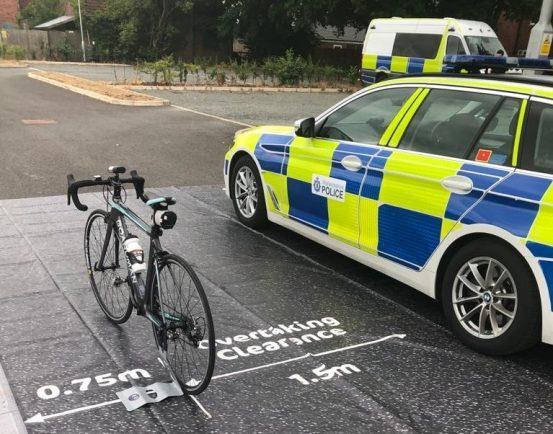
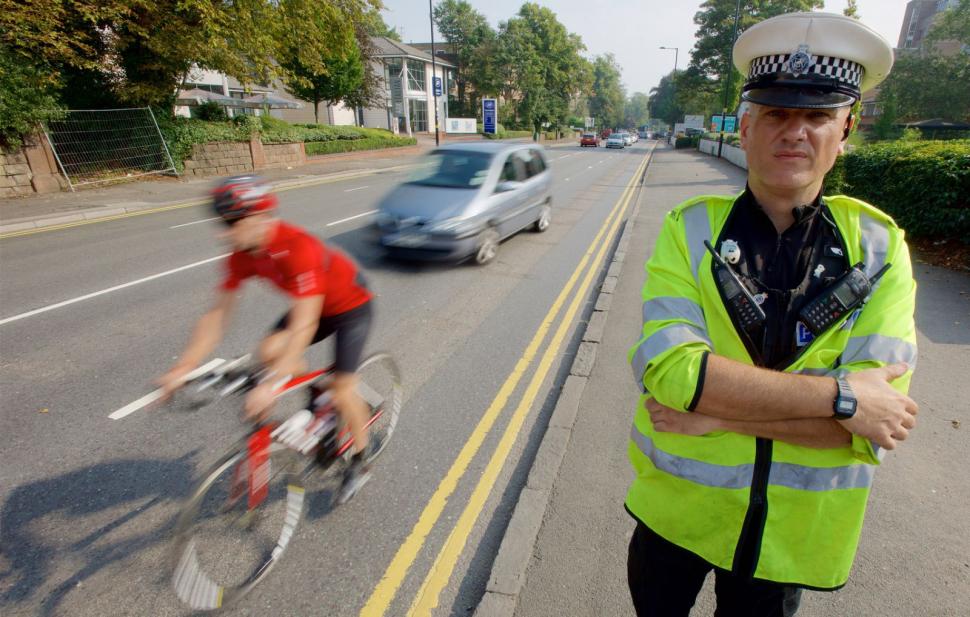
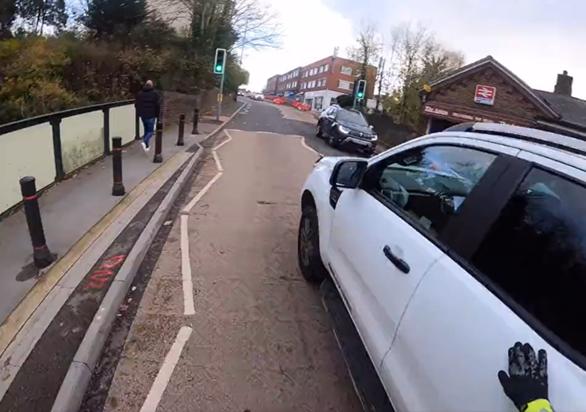
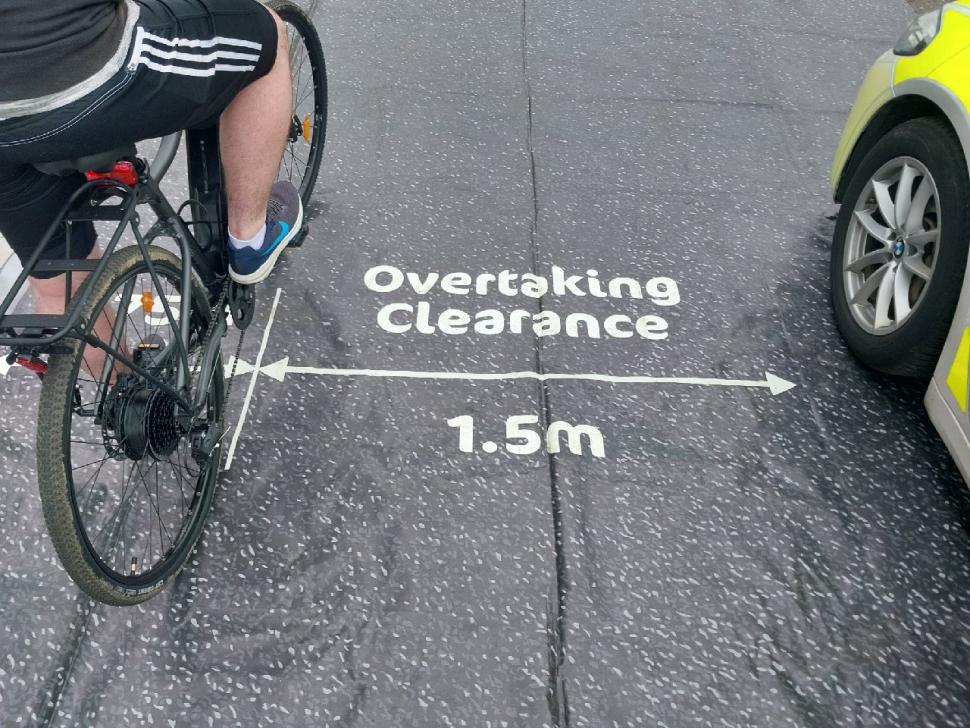
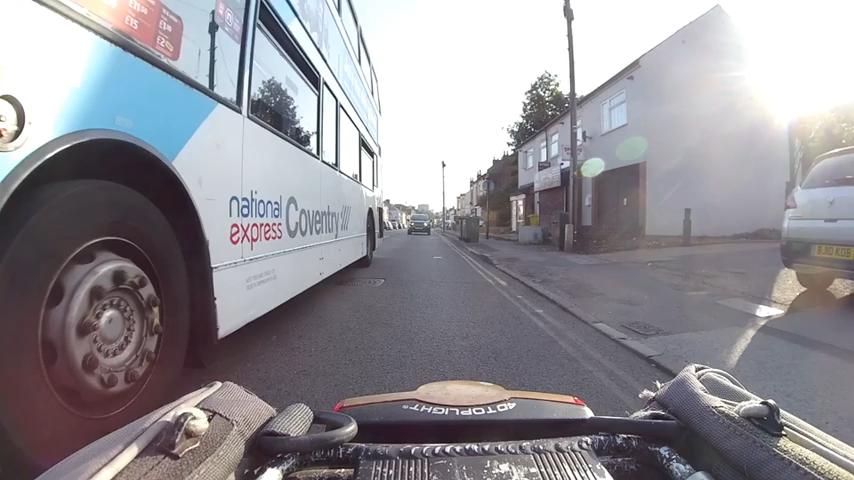
Add new comment
79 comments
I keep saying that stopping accidents from happening would help save lives and the NHS billions.
Accident prevention - TBF that's mostly a task beyond the police (though emergency forces are involved with this). They generally react when something has already happened (albeit we hope that might stop a recurrence).
We certainly need enforcement / social pressures to steer people to behave a certain way. Sometimes though evidence of people breaking rules / getting it wrong after they are "trained, tested and licenced" suggests we should look at changing the system too. In this case continuing to "tame the car" and gently pushing people away from using motor vehicles towards using other modes. Perhaps (wild thought) even other ways of achieving their goals which don't need so much travel / transport (generational, this)?
Examples:
https://bicycledutch.wordpress.com/2024/05/15/my-hometown-is-planning-to...
Lowering speed limits in urban areas (as should be done they're following up by altering the roads also): https://www.youtube.com/watch?v=JRbnBc-97Ps
Not just bikes - banning overtaking completely on some classes of road: https://en.wikipedia.org/wiki/Overtaking#Nationwide_ban_on_overtaking_as...
I'm puzzled as to why they have a non-crime unit. Is he like alcohol-free beer or something?
Certainly seems to be making statements with 0% proof...
Anyway, when will the police start dealing with real crime such as:
That certainly is crime! I see fare dodging, likely assault, probably criminal damage and maybe there are some rules about failing to follow the directions of train staff ...
Personally I feel that someone in the government should be asked some hard questions about the horrifying proliferation of squirrel attacks. And about tackling those pushing far-squirrel views and memes on the internet.
Surely the Fur Right are allowed to post their opinions? It's a free country isn't it?
But these were immigrant grey squirrels, not native red squirrels, so you can't expect the Telegraph to support them.
It sounds like whippets will be required on trains to protect passengers from errant squirrels. Perhaps police could take note and protect cyclists from bad drivers? Just a htought.
You'll be wanting pine martens rather than whippets. Send in whippets and the squirrels will just climb onto something and laugh at them.
"Refused to leave"?
"Well, we asked them very politely to leave and they just threw acorns at us"
Rendel, strange that you are using the telegraph's version of this story, are you feeling alright?
"....the head of Gloucestershire’s non-crime unit, Robert Vestey....."
I can't be the only one wondering why the head of the non-crime unit is spending his valuable time commenting on crimes? He doesn't appear to be expert in the subject, so why was he saying anything at all about it?
Better to remain silent and be thought a fool than to speak and to remove all doubt. — ABRAHAM LINCOLN.
Technically he's correct a close pass isn't an offence in itself, instead drivers are prosecuted for careless driving, which covers not leaving enough space for vulnerable road users.
It's a distinction he should have made clearer, but maybe he didnt realise he would get quoted like that.
He is a PURE. A previously undetected recruitment error.
The point he's making is not purely one of terminology though, he's saying that a close pass alone is not an offence unless it causes inconvenience. Now I'd hope that's a pretty low bar, and includes the shock/ fear a close pass induces, however fleeting. But I have no confidence that's how his force will interpret it when he says the inconvenience has to be shown in the video. Of course, involuntary swearing might demonstrate the effect it had on you, but then they'll prosecute you for a public order offence...
[EDIT - as OnYerBike has rightly pointed out elsewhere, actually 'inconvenience' is only required to prove the inconsiderate driving offence. A close pass alone is sufficient to constitute driving without due care and attention.]
They might threaten to prosecute you for swearing, but it'd never get past a jury. They'd have to demonstrate that the fruity language caused offense and that'd be difficult when swearing is common in public. It'd be even harder to get a conviction if the jury was persuaded that it was an involuntary outburst due to the shock, surprise and fear of a close-pass.
Absolutely. But I'm sure there have been news stories on here where it is still apparently used as a tactic to dissuade people reporting / persisting.
Yep. I reckon they just need their bluff called if they're doing anything other than just warning you about the language. (i.e. Tell them to Fack Off)
Pages